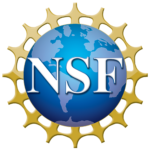Sumana Nandipati, SDSC, contributed to this story
Arkansas State University Assistant Professor Andrew Sweet will be using National Science Foundation ACCESS allocations on the Jetstream supercomputer at Indiana University to teach his phylogenetics and systematics class for both undergraduate and graduate students.
“The focus of our class is exploring the theory and practical applications of phylogenetics, which is the study of evolutionary history and relationships between groups of organisms,” explained Sweet. “Our lab section allows the students to use ACCESS allocations on Jetstream to learn computational approaches for phylogenetic analyses – emphasizing the use of sequence data such as larger-scale phylogenomic analyses.”

Thanks to ACCESS, we are able to share both theory and hands-on applications that use large datasets on supercomputers with our students at Arkansas State.
Andrew Sweet, Arkansas State University
The experiential learning class, which begins in Spring 2024, allows students to become familiar with phylogenetics software packages like IQTree and MrBayes. Sweet said that the students conduct projects that encompass large, real-world data sets and then apply phylogenetic methods for analysis.
“Thanks to ACCESS, we are able to share both theory and hands-on applications that use large datasets on supercomputers with our students at Arkansas State,” Sweet said. “The integration of computational approaches and the allocation of suitable resources underscore the commitment to providing a robust and forward-looking educational experience for the next cohort of researchers and scholars.”
This work was funded by ACCESS grant number BIO230038.
Project Details
Resource Provider Institution(s): Indiana University (Jetstream)
Affiliations: Arkansas State University
Funding Agency: NSF
Grant or Allocation Number(s): BIO230038
The science story featured here was enabled by the ACCESS program, which is supported by National Science Foundation grants #2138259, #2138286, #2138307, #2137603, and #2138296.


